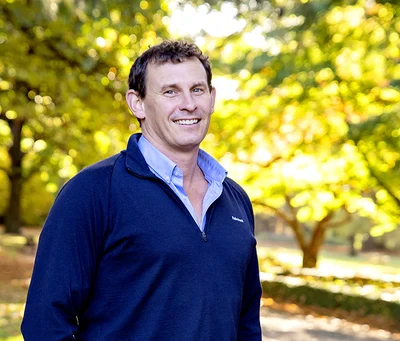Bryan ready for a new experience: camel shearing

Camel shearing, yurts and a stint in the desert lay ahead for a group of farmers and shearers that will embark on a trip to Mongolia to share their shearing skills.
The group comprises of around 13 Rabobank clients and staff who aim to train 120 herders to shear using electric machines.
For Rabobank Ashburton agribusiness associate and former shearer Sam Bryan, the June trip is a chance to give something back, and experience Mongolian culture.
The trip follows a visit to New Zealand by four Mongolian herders through the Share Mongolia programme funded through the Rabobank community fund.
It aims to give Mongolian farmers training and access to modern shearing equipment.
Most shearing in Mongolia is done using scissors, a time-consuming method that limits the number of sheep shorn to just 30 per day, and makes it difficult for herders to support their families.
When armed with skills and the necessary equipment, herders can shear around 200 sheep per day, 60 days per year, and make around $100 per day instead of just $15.
Bryan will be travelling to the Gobi desert on his three-week trip and is looking forward to the adventure, which will include living in a yurt, in what will be a complete immersion into Mongolian life.
“I’ve never travelled to a third-world country, so I’m probably going to go out and get some gear and prepare myself a bit for that and go in boots and all when I get there.”
Bryan, 37, grew up on a farm and began shearing at 30, entering the speed shearing competition circuit before joining Rabobank.
One thing he hasn’t done to date, though, is shear camels, which is on the cards for this trip.
“I had no idea; I thought this was a joke. But after reading about it, I can certainly say it will be interesting,” Bryan said.
Rabobank agribusiness manager Paul Brough has been heavily involved in the Share Mongolia programme since he first visited the country in 2019.
Brough said camel hair was one of the best natural fibres, but is difficult to harvest.
Camel fibre is finer than wool, lending itself to luxury products such as coats, bedding and rugs.
Shearing the hair rather than collecting it after moulting means the fibre will be in much better condition and can be packaged, Brough said.
One of the members of the group will take a spinning wheel and will try spinning the camel fibre.
“If that works, we will leave the spinning wheel there, and the herders can make yarn,” Brough said.
The Mongolian expedition relies on funding, with 19 different Mongolian herder groups requesting shearing courses.
Six groups have been granted funding from agencies such as the United Nations and various banks and embassies, and with other groups close to reaching their fundraising goals, that number is set to increase.
Each course costs around $15,000, with $8000 of that being equipment left for Mongolian herders to use and potentially share their knowledge and skills with other local farmers.
- By Claire Inkson

